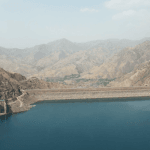The European Parliament has adopted comprehensive policy recommendations to achieve a carbon-neutral, sustainable, toxic-free and fully circular economy by 2050 at the latest.
MEPs adopted the report in February 10 with 574 votes in favour, 22 against and 95 abstentions, is a response to the Commission’s Circular Economy Action Plan.
MEPs called for binding 2030 targets are needed for materials use and our consumption footprint, covering the whole lifecycle of each product category placed on the EU market.
They also called on the Commission to propose product-specific and/or sector-specific binding targets for recycled content.
Parliament urged the Commission to put forward new legislation in 2021, broadening the scope of the Ecodesign Directive to include non-energy-related products. This should set product-specific standards, so that products placed on the EU market perform well, are durable, reusable, can be easily repaired, are not toxic, can be upgraded and recycled, contain recycled content, and are resource- and energy-efficient.
In the plenary debate, MEPs also emphasised that achieving the Green Deal objectives will only be possible if the EU switches to a circular economy model, and that this change will create new jobs and business opportunities. Existing legislation on waste must be implemented more thoroughly, and further measures are needed for key sectors and products, such as textiles, plastics, packaging and electronics, MEPs added.
In March 2020, the Commission adopted a new “Circular Economy Action Plan for a Cleaner and More Competitive Europe”. A debate in the Environment Committee took place in October 2020, and the report was adopted on January 27, 2021.
Up to 80% of the environmental impact of products is determined at the design phase. The global consumption of materials is expected to double in the next forty years, while the amount of waste generated every year is projected to increase by 70% by 2050, the Parliament said, adding that half of total greenhouse gas emissions, and more than 90% of biodiversity loss and water stress, come from extracting and processing resources.






